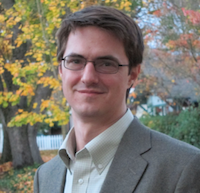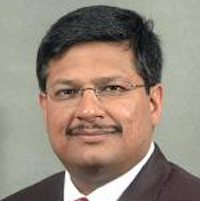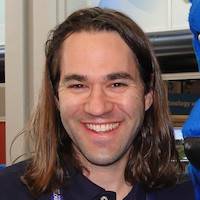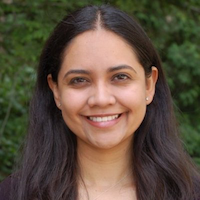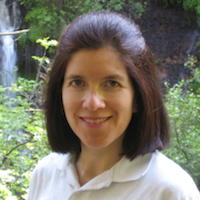Timeline
Torsten Moeller is a professor at the University of Vienna, Austria, since 2013. Between 1999 and 2012 he served as a Computing Science faculty member at Simon Fraser University, Canada. He received his PhD in Computer and Information Science from Ohio State University in 1999 and a Vordiplom (BSc) in mathematical computer science from Humboldt University of Berlin, Germany. He is a senior member of IEEE and ACM, and a member of Eurographics. His research interests include algorithms and tools for analyzing and displaying data with principles rooted in computer graphics, image processing, visualization and human-computer interaction. He heads the research group of Visualization and Data Analysis. He served as the appointed Vice Chair for Publications of the IEEE Visualization and Graphics Technical Committee (VGTC) between 2003 and 2012. He has served on a number of program committees and has been papers co-chair for IEEE Visualization, EuroVis, Graphics Interface, and the Workshop on Volume Graphics as well as the Visualization track of the 2007 International Symposium on Visual Computing. He has also co-organized the 2004 Workshop on Mathematical Foundations of Scientific Visualization, Computer Graphics, and Massive Data Exploration as well as the 2010 Workshop on Sampling and Reconstruction: Applications and Advances at the Banff International Research Station, Canada. He is a co-founding chair of the Symposium on Biological Data Visualization (BioVis). In 2010, he was the recipient of the NSERC DAS award. He received best paper awards from IEEE Conference on Visualization (1997), Symposium on Geometry Processing (2008), and EuroVis (2010), as well as two second best paper awards from EuroVis (2009, 2012).
Bill Howe is the Associate Director of the UW eScience Institute and holds an Affiliate Assistant Professor appointment in Computer Science & Engineering at the University of Washington, where he studies data management, analytics, and visualization systems for science applications. Howe has received two Jim Gray Seed Grant awards from Microsoft Research for work on managing environmental data, has had two papers elected to VLDB Journal's 'Best of Conference' issues (2004 and 2010), and co-authored what are currently the most-cited papers from both VLDB 2010 and SIGMOD 2012. Howe serves on the program and organizing committees for a number of conferences in the area of databases and scientific data management, and serves on the Science Advisory Board of the SciDB project. He has a Ph.D. in Computer Science from Portland State University and a Bachelor's degree in Industrial & Systems Engineering from Georgia Tech. Flyer
Dan Keefe is an Associate Professor in the Department of Computer Science and Engineering at the University of Minnesota. His research centers on scientific data visualization and interactive computer graphics. Keefe’s recent awards include the National Science Foundation CAREER award; the University of Minnesota Guillermo E. Borja Award for research and scholarly accomplishments; the University of Minnesota McKnight Land-Grant Professorship; and the 3M Non-tenured Faculty Award. He has received multiple best paper and best panel awards at top international conferences, such as IEEE VIS and ACM Interactive 3D Graphics. His research has been funded by the National Science Foundation, the National Institutes of Health, the National Academies Keck Futures Initiative, and industry sponsors. In addition to his work in computer science, Keefe is also an accomplished artist and has published and exhibited work in top international venues for digital art. Before joining the University of Minnesota, Keefe did post-doctoral work at Brown University jointly with the departments of Computer Science and Ecology and Evolutionary Biology and with the Rhode Island School of Design. He received the Ph.D. in 2007 from Brown University’s Department of Computer Science and the B.S. in Computer Engineering summa cum laude from Tufts University in 1999. Flyer
Gagan Agrawal is an educator and researcher in Computer Science and Engineering, currently a professor at the Ohio State University. He has published more than 170 papers in his 19 year research career. He has graduated 12 Ph.Ds (currently working with another 11 Ph.D students) and his research has been supported by more than 7 million dollars of funding from government agencies. Gagan has conducted research in a number of computer science areas, including parallel and distributed systems and applications, data-intensive computing, compilers, middleware systems, data mining, data integration, web search, and web/grid services. His current research focuses on a number of topics, including issues in programming emerging multi-core machines and GPGPUs, deep web search, time-critical/adaptive systems, and data-intensive computing. He has taught graduate and undergraduate classes in operating systems, distributed systems, computer architecture, and compilers. In addition to his research and teaching responsibilities at Ohio State, Gagan has served as the graduate program chair for his department at Ohio State since 2003. Flyer
Wu-Chun (Wu) Feng is the Elizabeth & James E. Turner Fellow & Professor in the Department of Computer Science, Department of Electrical & Computer Engineering, and Virginia Bioinformatics Institute at Virginia Tech. His interests lie broadly at the synergistic intersection of computer architecture, systems software and middleware, and applications software. Most recently, his research has dealt with high-performance networking protocols, dynamic multicore scheduling, accelerator-based computing for bioinformatics, virtual computing, power-aware computing, and bioinformatics in general. He joined Virginia Tech in 2006 after spending seven years at Los Alamos National Laboratory. He is the recipient of three Best Paper Awards in human-computer interaction, high-performance networking, and bioinformatics, respectively, and three R&D 100 Awards in green supercomputing, high-speed networking, and bioinformatics, respectively. He leads the SyNeRGy Laboratory as well as four grass roots projects: The Green500 List, mpiBLAST, Supercomputing in Small Spaces, and MyVICE. Flyer
Terry Turton is an Associate Research Scientist at the University of Texas - Austin's Center for Agile Technology. She received her Ph.D. in Physics from the University of Michigan and did postdoctoral work at the Superconducting Super Collider, Michgan State University and the University of Cincinnati. Her current work focuses on improved colormaps for scientific visualization and creating, implementing, running and analyzing user studies to improve visualizations of scientific data. Flyer
Dr. Kenneth Moreland is a principal member of technical staff at Sandia National Laboratories. He received the BS degrees in computer science and in electrical engineering from the New Mexico Institute of Mining and Technology in 1997. He received the MS and Ph.D. degrees in computer science from the University of New Mexico in 2000, and 2004, respectively. Dr. Moreland specializes in large-scale visualization and graphics and has played an active role in the development of several HPC products including ParaView, VTK, IceT, and Dax. His current interests the design and development of visualization algorithms and systems to run on multi-core, many-core and future-generation computer hardware. Flyer
Cindy Rubio Gonzalez is an Assistant Professor of Computer Science at the University of California, Davis. Prior to that position, she was a Postdoctoral Researcher in the Electrical Engineering and Computer Sciences Department at the University of California, Berkeley, where she worked with Koushik Sen, James Demmel, Costin Iancu, and William Kahan. She received her Ph.D. in Computer Science from the University of Wisconsin–Madison in 2012, advised by Prof. Ben Liblit. Her work spans the areas of programming languages and software engineering, with a specific focus on program analysis. Her research aims to design and build tools to help developers write more reliable and efficient software. For her doctoral dissertation, she designed and applied static program analyses to find error-propagation bugs in large software systems. At UC Berkeley, Cindy led the development of dynamic program analysis tools to improve the performance of numerical programs. Cindy is a UC Davis CAMPOS Faculty Scholar, an AAUW International Doctoral Fellow, and a member of Latinas in Computing. Cindy earned her M.S. in Computer Science from the University of Wisconsin–Milwaukee and her B.S. in Computer Engineering from Saltillo Institute of Technology (Mexico). She also received a B.M. in Piano Performance from the Autonomous University of Coahuila (Mexico). Cindy is originally from Saltillo, Coahuila, México. Flyer
Dr. Cecilia Aragon is the director of the Human-Centered Data Science Lab at the University of Washington. Her research focuses on human-centered data science, which concerns itself with both the algorithms and the highly interwoven and multifaceted interactions among individuals, society, and technology that are catalyzed by the enormous growth in data that characterizes the current age. Aragon's research group develops software to facilitate insight into vast and complex data sets, incorporating techniques such as visual analytics (visualization and machine learning), data science, ethnography, and the study of sociotechnical systems including informal text communication and social media. Other projects include the use of computer gaming for collaborative science learning, and topics related to usability and sustainability. She was the architect for Sunfall, a collaborative visual analytics system for supernova astrophysics. She developed an augmented-reality visualization system for helicopter pilots that increased their ability to land safely during simulated hazardous conditions. Her early work was in theoretical computer science. She was the co-inventor (with Raimund Seidel) of the treap, a binary search tree in which each node has both a key and a priority, and the randomized search tree, which uses random priorities in treaps to achieve good average-case performance. With Johnson, McGeoch, and Schevon, she conducted the first extensive evaluation of the simulated annealing algorithm in combinatorial optimization problems. Flyer
Hamish Carr is currently a member of the Visualization and Virtual Reality Group at the University of Leeds where he also teaches Software Engineering. He has taught I have taught Computer Graphics, Advanced Computer Graphics and Scientific & Medical Visualization. Carr's interests are in anything that combines geometry, computers and a visual element. This includes computer graphics, computational geometry, scientific and medical visualization, and graph theory. Flyer

